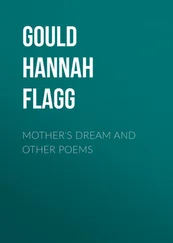I grip the back of my neck, watching Hashini carry curry bowls back and forth from the house to the cooking hut. “Hashini is always working,” I say.
“Yes. She does the mother’s situation very well.” Suriya dries my plate on her T-shirt. Her placid praise frightens me. But maybe Hashini is happy doing the mother’s situation. Why do I want only inconvenient things?
—
I’ve decided not to use my iodine tablets, to force my body to adjust to the well water. I’m grateful for my headlamp during my second trip to the outhouse that night. Squatting over the hole, my long nightshirt gathered up in my right hand, I’m reaching for the blue plastic bowl floating in the water bucket, preparing to splash myself clean, when I hear something moving on the dirt yard, close to the outhouse. I pause, shirt in one hand, bowl in the other. It could be any number of tiny, harmless animals — I tell myself — but then I hear the movement again, too delicate to belong to an animal. The sound of a human trying not to be heard. Calm your breath. It’s probably just Suriya or Hashini, making sure I’m okay out here.
I crane my neck to the side of the outhouse, where the noise came from. My headlamp catches two disembodied gleaming orbs, pressed against a slat in the boards. Illogically, impulsively, I return my eyes to the ground, fully illuminating my naked lower half. Fuck. I switch off my headlamp and sit on my heels in the dark, heart pounding, gripping the bowl of water like a weapon.
Please God, let those eyes belong to a pervy uncle. Do not let them belong to someone from the village lying in wait for me. How awful that a pervy uncle would not be so bad, compared to — no. Calm down. My bent knees start to ache. Mechanically, I wash myself, pull up my underpants, and stand. I can’t stay in this outhouse forever. I can scream if I need to. I turn my headlamp back on and flash the side wall. The eyes withdraw. That sound again: calculated delicacy. I hold my breath to hear the direction into which it retreats — a sure path to Hashini’s house.
So it was a family pervert. Fear gives way to disgust. Ayya of course. It couldn’t be Rajesh. He’s old and timid and sweet. And Sri Lankan soldiers are notorious sexual predators — the awful thing in Haiti, how the soldiers who went to help after the earthquake had to be sent home for having sex with underage girls, people in Jaffna telling me women were forced to give sexual favors in exchange for seeing their husbands or sons in political prisons. Suriya rolls onto her back when I return to our room. “Okay, Akki?” she whispers. How blind she is to all this.
“Okay, Nangi. Go back to sleep.”
—
The next afternoon, I work on my translation while Suriya watches cartoons with her cousins. I can’t bring myself to tell her that her brother is a Peeping Tom. She would be crushed — disillusioned. The permanent kind. I’m sure she’s not even capable of imagining sexual deviance, let alone associating it with her brother. And in daylight the whole thing seems more pathetic than nefarious: Ayya is so desperate for sexual contact he’s willing to spy on his sister’s friend squatting over a shit-smeared hole.
So I smother the thought and become a ludicrous foreigner with a giant dictionary on my lap, seeking the right word for fougue in the context of a man comforting himself over a lost cat by attributing it to the creature’s fougue . I love the French word because I can’t explain it precisely in English. Any potential equivalent (vitality, chutzpah, pizzazz, spirit) is too colloquial by comparison — because, of course, French is never colloquial for me. I’ve barely spoken the language since my year in Paris more than a decade ago. I lean back in my chair. Sweat gathers under the heavy dictionary on my lap. There’s something sad to me about the act of translating. To fit the book into my language destroys what I originally loved about it — the French sounds like instruments lending nuance to coarse song lyrics, manipulating emotion into shapes as gaudy outside the body as they felt inside; the subtle, unconscious work required to make literal sense of words not native to me replacing the subtle, unconscious criticism I bring to English sentences. La musique sonne mieux quand on n’a rien d’autre à aimer. Music sounds better when one has nothing else to love. Or maybe: You feel music most strongly when it’s the only thing you love. Hideous. Is the original sentence pretentious and self-pitying, rather than the blunt expression of strong, simple feeling I took it to be when I first read it in French? Or am I just a bad translator? On the cartoon inside, female characters giggle and gasp in response to a man’s bravado monologue. Suriya laughs. Maybe the publisher will be interested in Fifi. Then it won’t matter how I feel about translating. I’ll just do it.
Ayya returns on his motorbike. He’s been out most of the day, visiting friends in the neighborhood. He offers me a brief smile as he walks to the house. I lower my narrowed eyes to my book. A tuk-tuk hurls itself into Hashini’s yard. A tall, soft-bellied man who seems very conscious of the beauty of his hair spills out of his tiny, open-air car, shirtless, the top button of his trousers undone. His wife follows, sweaty and plump in the annoyingly forgivable way of full-time mothers, a naked baby on her hip. “Puta!” Rajesh kisses the man on both cheeks. Puta means son, Suriya tells me. Or sometimes daughter, if favorite daughter. This is the family of Hashini’s eldest son, visiting from Colombo. Suriya coos at the baby.
Within minutes, Puta has distributed plastic cups of Sprite, spiked his and his father’s with Johnnie Walker, handed me a guava and Suriya the gold bangles off his wife’s wrist, held his baby’s feet straight upward in a worrisome handstand, and put on a CD so loudly the family has to shout to be heard over it. Suriya picks up the baby and starts dancing — small, precise jumps in rhythm with the sitar blasting from the stereo. I take the baby’s other hand and bounce along. Suriya mashes his cheek with her lips and tries to hand him to me. I back away, still bouncing. I like babies, but they make me uncomfortable. I would like to just observe their barbaric humanness — the intense, mercurial parade of facial expressions and sounds that overtake their bodies — but people always expect you to reach out for them, grinning and cooing.
“A baby is only heart. No head!” Suriya shouts over the music. I shout back my agreement, delighting in the chaos Puta has wrought, delighting in my sober delight. When the sitar album comes to an end, Suriya hands the baby to his mother. “I think you want to make shower before bed, El,” she says. My toes are caked in dirt, the hair around my ears matted with dried sweat, my shirt plastered to my back. I am so grateful for my perceptive host! I follow her into the bedroom. “Open shower, so we must cover,” she says, and shows me how to knot a sarong tightly over my breasts. We pad out to the backyard. The showerhead protrudes from the outhouse. Suriya watches me, saying, “Is okay, Akki? Is okay?” I am so irritated by my overeager host! I just want to feel the cold water soaking my hair and sarong, look up at the cloud masses combing the purpled sky and the loud, tiny birds dipping in and out of fluffy, persimmon-colored flowers blooming atop lanky trees. Yes, Nangi, is okay.
When we return to the house in our sopping sarongs, Hashini is preparing pallets on the living room floor. The drunk cousin snores on the couch. They have offered me the one bed. “I can sleep out here, Nangi,” I say. “The older people should have the bed.” But Suriya laughs and tells me again that I am guest. Guiltily, I follow her into the bedroom. We change, facing away from each other, into loose pants and T-shirts that will dry too quickly in the parched air. I want to stretch out naked and savor these brief moments of coolness. Impossible. Suriya showers clothed, changes into oversize pajamas without exposing herself, sleeps in a room covered by a translucent cloth into which her family members peer unhindered. She is almost never alone with her body. I clutch my stomach against that imagined deprivation. I need my closeness to my body partly because it makes me feel close to my own death, that empty space inside me that none of my words or behaviors can touch.
Читать дальше












